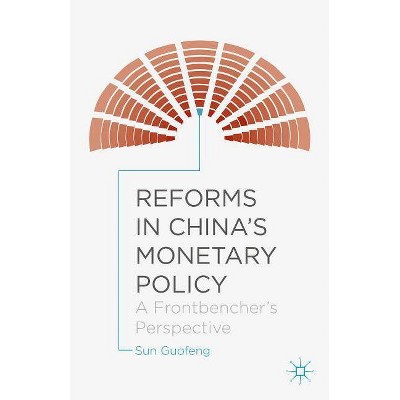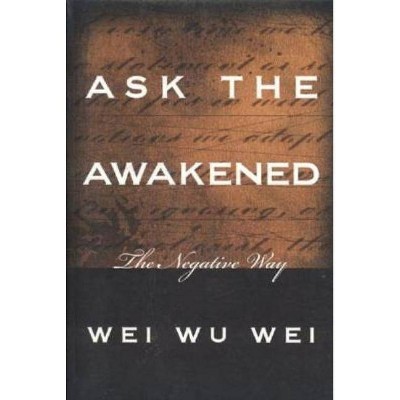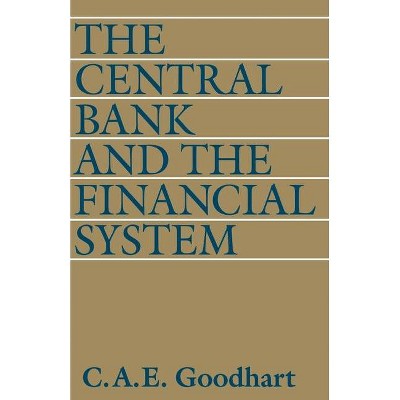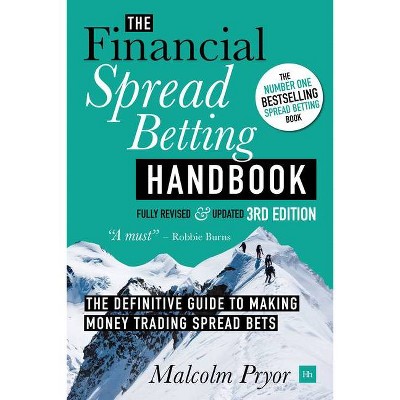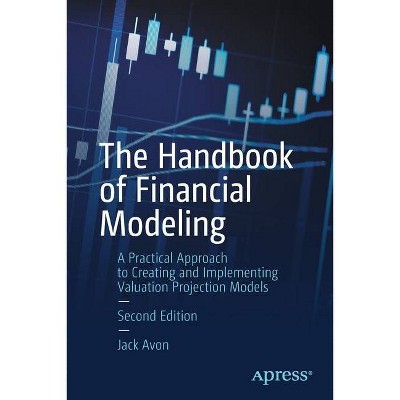The Handbook of China's Financial System - by Marlene Amstad & Guofeng Sun & Wei Xiong (Hardcover)
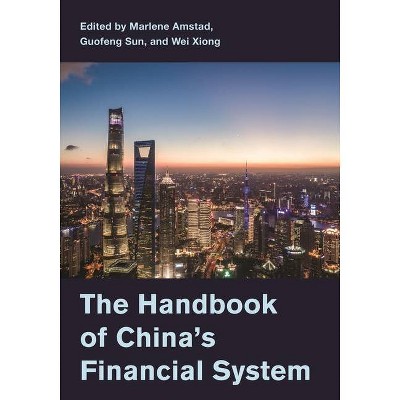
Similar Products
Products of same category from the store
AllProduct info
<p/><br></br><p><b> About the Book </b></p></br></br>"The Chinese economy is now easily one of the most important and closely scrutinized economies in the world. Relatively minuscule changes in predictions of how the Chinese economy will perform can drive up or down stocks and the price of oil and other commodities. At the heart of how the Chinese economy works is its financial system-but the Chinese financial system is vastly different than most people in the West can understand. How do house prices work, for example, in a country where the very concept of property ownership is significantly different than our own? This edited volume will serve as a standard reference guide to China's financial system. With eighteen chapters, the handbook features overviews on the banking sector-the core of China's financial system and the key channel for implementing China's monetary policy-China's ongoing reforms, and the quickly growing bond and money markets, among other topics. Each chapter is written by a leading expert in the field, and as a whole the list of contributors represents an impressive mix of leading scholars and high-level policy officials, some with first-hand knowledge of setting and carrying out Chinese financial policy. The handbook will serve as the first real authoritative volume of literature in the field, and will shed extensive new light on the links between China's financial system and the real economy"--<p/><br></br><p><b> Book Synopsis </b></p></br></br><p><b>A comprehensive, in-depth, and authoritative guide to China's financial system </b> <p/>The Chinese economy is one of the most important in the world, and its success is driven in large part by its financial system. Though closely scrutinized, this system is poorly understood and vastly different than those in the West. <i>The Handbook of China's Financial System</i> will serve as a standard reference guide and invaluable resource to the workings of this critical institution. <p/>The handbook looks in depth at the central aspects of the system, including banking, bonds, the stock market, asset management, the pension system, and financial technology. Each chapter is written by leading experts in the field, and the contributors represent a unique mix of scholars and policymakers, many with firsthand knowledge of setting and carrying out Chinese financial policy. The first authoritative volume on China's financial system, this handbook sheds new light on how it developed, how it works, and the prospects and direction of significant reforms to come. <p/>Contributors include Franklin Allen, Marlene Amstad, Kaiji Chen, Tuo Deng, Hanming Fang, Jin Feng, Tingting Ge, Kai Guo, Zhiguo He, Yiping Huang, Zhaojun Huang, Ningxin Jiang, Wenxi Jiang, Chang Liu, Jun Ma, Yanliang Mao, Fan Qi, Jun Qian, Chenyu Shan, Guofeng Sun, Xuan Tian, Chu Wang, Cong Wang, Tao Wang, Wei Xiong, Yi Xiong, Tao Zha, Bohui Zhang, Tianyu Zhang, Zhiwei Zhang, Ye Zhao, and Julie Lei Zhu.</p><p/><br></br><p><b> About the Author </b></p></br></br><b>Marlene Amstad</b> is professor of economics and finance at the Chinese University of Hong Kong, Shenzhen; codirector of the Fintech Centre at the Shenzhen Finance Institute; and senior fellow at the Harvard Kennedy School. She is the coeditor of <i>Central Bank Digital Currency and Fintech in Asia</i>. <b>Guofeng Sun</b> is director general of the Monetary Policy Department of the People's Bank of China. He is the author of <i>Reforms in China's Monetary Policy</i> and <i>Financial Reforms in Modern China</i>. <b>Wei Xiong</b> is the Trumbull-Adams Professor of Finance and professor of economics at Princeton University. He is also academic dean of the School of Management and Economics at the Chinese University of Hong Kong, Shenzhen.
Price History
Price Archive shows prices from various stores, lets you see history and find the cheapest. There is no actual sale on the website. For all support, inquiry and suggestion messagescommunication@pricearchive.us
